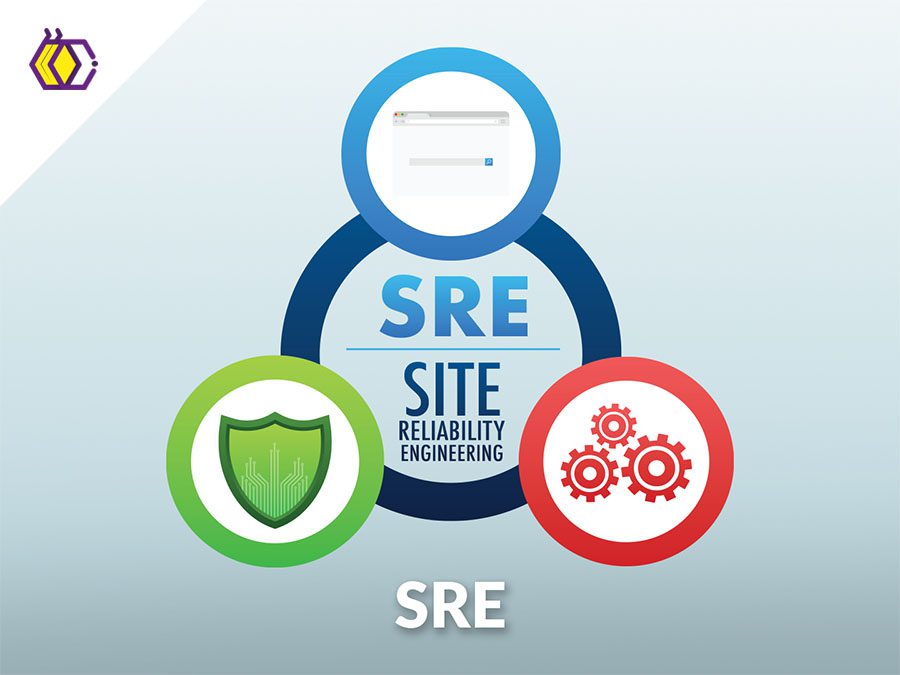

Site Reliability Engineering
(7 minutes reading) Site Reliability Engineering (SRE), is a discipline that combines software engineering and operations to build, deploy and maintain systems. SRE aims to build highly available and scalable systems. To achieve this, SRE teams use a variety of tools and techniques, including automation, monitoring, and incident response. SRE is a relatively new field, but it has already had a big impact on the way companies operate. Google was one of the first companies to adopt the SRE principles, and since that it has been adopted by many other organizations. UNDERSTAND WHAT MAKES AN SRE SRE is a software engineering discipline that focuses on the availability, scalability, and performance of software systems. SRE teams are responsible for ensuring that systems are always available and performing well, as well as being able to quickly scale to meet demand. Google's SRE team was founded in 2003 and the company has been using the SRE model ever since. WHAT DOES IT TAKE TO BECOME AN SRE PROFESSIONAL? It takes more than just technical knowledge to become an SRE. The job requires a combination of skills, including: 1) The ability to learn new technologies quickly. As an SRE, you will be responsible for managing a wide variety of systems. That means you need to learn new technologies as they are released and keep up with the latest industry trends. 2) Strong problem-solving skills. When something goes wrong with a system, it's up to the SRE to fix it. This requires the ability to quickly identify the root cause of the problem and come up with a plan to correct it. 3) Excellent communication skills. An SRE needs to be able to communicate effectively with technical and non-technical personnel. WHAT ARE THE OBJECTIVES OF THE SRE? Site Reliability Engineering (SRE) is a field that combines software engineering and operations. The main objective of SRE is to create highly reliable and scalable software systems. To achieve this, SRE teams focus on three key areas: availability, latency, and efficiency. Availability refers to the uptime of a system or the percentage of time a system is operational. For example, a highly available system might have an uptime of 99.999%, which means it is down only for less than 5 minutes per year. Latency refers to the amount of time it takes for a request to be processed by a system. A system with low latency will be able to process requests quickly, while a system with high latency will take longer to process requests. Efficiency refers to the use of resources by a system. WHAT ARE THE DIFFERENCES BETWEEN DEVOPS AND SRE? DevOps is a software development methodology that combines aspects of software development and operations. The goal of DevOps is to reduce the time between committing a change to code and deploying that change to production. The SRE is a set of practices that aim to reduce outages and improve service availability and resilience. SREs are responsible for keeping systems running, which includes incident response, monitoring, and capacity planning. While DevOps and SRE aim to improve the speed and quality of software deployments, they take different approaches. DevOps focuses on automating the process of code changes, while SRE focuses on improving systems reliability. HOW DOES SRE WORK? SRE work is a process that begins with the development of a product or service. Once the product or service is developed, it is implemented in a system. The system is then monitored and maintained by the SRE team. The SRE team works to identify and resolve issues that may arise while using the product or service. They also work to improve overall system performance. In addition, they work to ensure that the system meets all the safety and security requirements. THE ROLE OF AUTOMATION IN SRE As the world of software development becomes more complex, the role of automation in SRE becomes more critical. Here we explore how and why to automate the SRE. The ever-increasing pace of software development means that manual processes are no longer viable. To keep up, we need to automate. Automation allows us to move faster and make fewer mistakes. When it comes to SRE, automation can help with a variety of tasks, from monitoring and logging to deployments and rollbacks. By automating these tasks, we can free up time for more important work, like improving our services or responding to incidents. Ultimately, automation is essential to maintain a high level of quality in our services. By automating the boring and repetitive tasks, we can focus on the interesting and important work that will make our services better. THE BENEFITS OF SRE SRE is a type of engineering that focuses on improving the quality and reliability of software products. This engineering discipline can be applied to any type of software development, from web applications to mobile applications. SREs use a variety of tools and techniques to identify and fix software defects before they become customer-facing issues. SREs also work closely with developers to prevent defects from occurring in the first place. By following best practices for coding, testing, and deploying code changes, SREs can help reduce the number of production incidents. In addition, SREs can help improve the efficiency of development teams by automating tasks such as deployment and monitoring. The benefits of SRE go beyond improving software quality. When done correctly, SRE can also lead to faster development cycles, reduced costs, and greater customer satisfaction. Did you like our content? So be sure to follow us on social media. Oh! And be sure to follow our blog to stay updated.
Share this article on your social networks:
Rate this article:
[yasr_visitor_votes size=”medium”]



